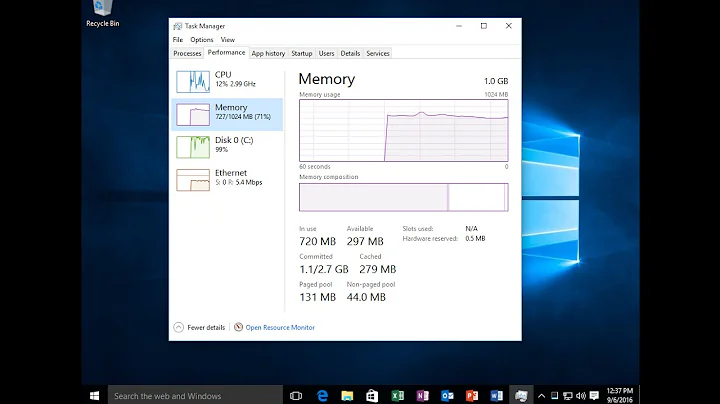How can I restrict RAM usage for a particular user or process?
9,914
Solution 1
ulimit is your friend. Check out the -m flag. I think you set this before you launch your process and it applies from then on (in the current shell).
Solution 2
In addition to the shell commands ulimit (for bash) or limit (for csh), you can control this from inside your code with the ulimit() function.
Related videos on Youtube
Author by
guerda
Updated on September 17, 2022Comments
-
guerda over 1 year
I'm using a background service that leaks memory from time to time. To prevent using the Alt+SysRq REISUB[1], I'd like to restrict the RAM usage for one process or a system user.
I really would like to say: User x may use the maximum amount of RAM of 1 GB.
Is this feasible? Do I need kind of virtual machine for this? I'm using Ubuntu 9.10.
-
Stephan202 over 14 yearsObligatory manpages: linux.die.net/man/1/ulimit (shell command) and linux.die.net/man/3/ulimit (C function).
-
guerda over 14 yearsThanks, nice hint! As I understand ulimit, it limits all users memory/process/whatever consumption. I just like to limit it to one user/process & subprocesses.
-
KeithB over 14 yearsulimit is a shell command, and only affects processes started from the same shell after ulimit is executed. You startup the process in a shell script with a ulimit command to have it affect just that process.
![How To Fix High RAM/Memory Usage on Windows 10 [Complete Guide]](https://i.ytimg.com/vi/osKnDbHibig/hq720.jpg?sqp=-oaymwEcCNAFEJQDSFXyq4qpAw4IARUAAIhCGAFwAcABBg==&rs=AOn4CLDgajRq6bP7JD1erNguFVloL0gqUA)



